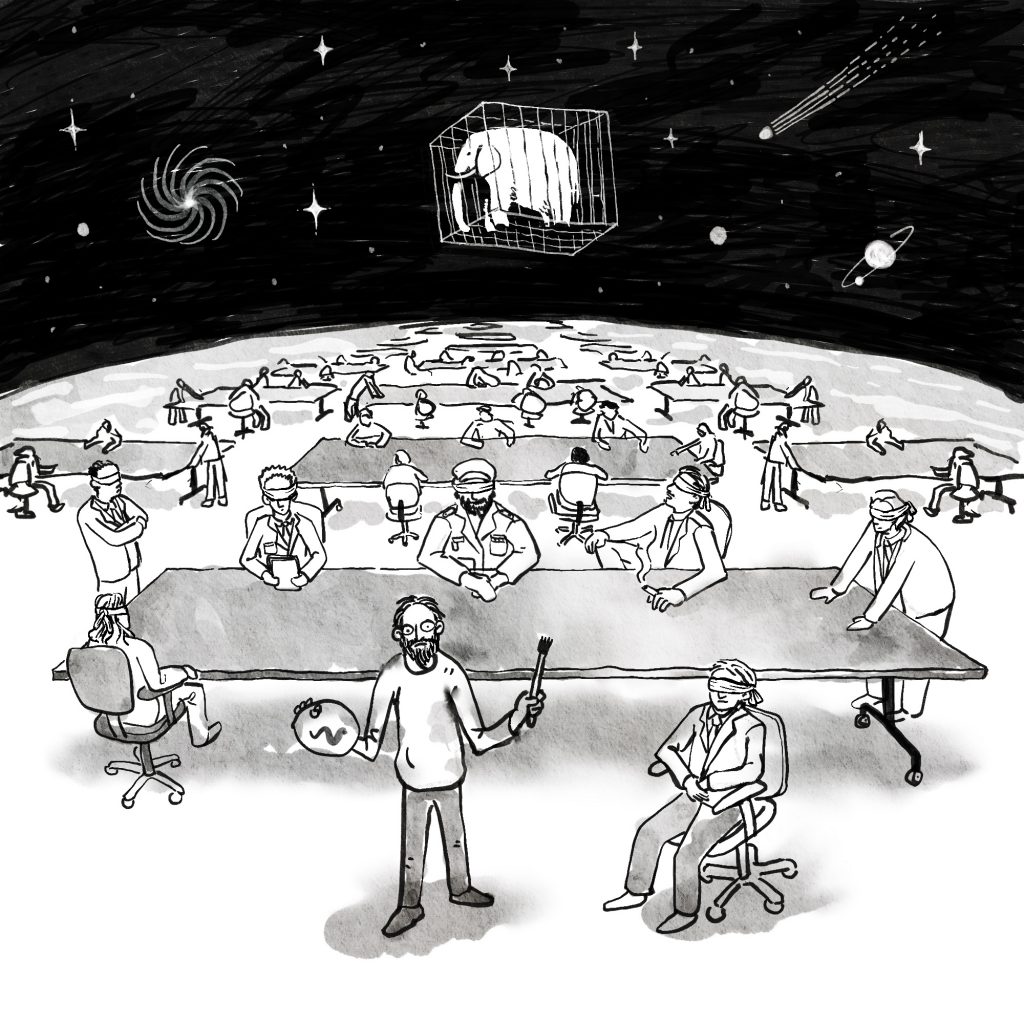The parable of the blind men and an elephant is frequently used as an illustration of multidisciplinary research. There is an elephant (say, in the room) and blind men surround it, each touching a different part of the animal. Subsequently, each man tells a different story that corresponds to the specific feature he touched. The moral is that only if we combine the stories of all [men] scholars will we know what the elephant really is. I would like to challenge this parable to demonstrate its inadequacies—and by extension the inadequacies of the paradigm of “multidisciplinarity,” as well as its permutations such as cross-, trans-, and even anti- or non-disciplinary, or any others that operate with “discipline” as a frame of reference.
But first: elephants, rooms, parables, and men do not exist in a vacuum, free of social relations and cultural frameworks. If we are to use this parable to describe accumulating and instituting knowledge, we should develop it further. First, we should agree to stop using blindness to represent inferior perception of the world: this is a product of conventions that measure people’s abilities with respect to the cultural “normal” and should not apply anymore if we take the idea of diverse perspectives on knowledge seriously. Let’s introduce blindfolded people instead (those blindfolds will come in handy later.) We should also stop using “man” as a synonym for “scholar,” for obvious reasons. The updated parable then begins with a group of blindfolded people surrounding an elephant in a room.
Not all blindfolded people are equal with respect to the elephant and knowledge about it. Some have more room to move and can touch more of the elephant’s body; some own the room where the elephant and the people are placed; some have the authority to admit—or not—other people into the room; some are descendants of those who brought the animal from the colonies to begin with and still control the grand narratives of the elephant; some still have financial stakes in the enterprise. Others in the room may question this entire arrangement and ask: why don’t you let us in your parts of the room so we have a better feel of the thing? Why don’t you give up ownership of the room (and the elephant) altogether so we don’t have to ask for permission? And did anyone ask the elephant if it wants to be touched? Can we learn about it without locking it up in the room?
The model of many perspectives building a full picture falls apart, and instead multitudes of cultures and worldviews emerge, with relationships of power and subversion among them. Power, because of the financial, institutional, and cultural control that some of the blindfolded people exercise over the process of learning. Subversion, because the worldviews and actions of other blindfolded people, mostly those with less power, may challenge the foundational premises of those with more.
This excerpt is taken from a piece that was commissioned by Mn Artists, the Walker Art Center's platform for local arts writing. Read the full essay on Mn Artists >>




